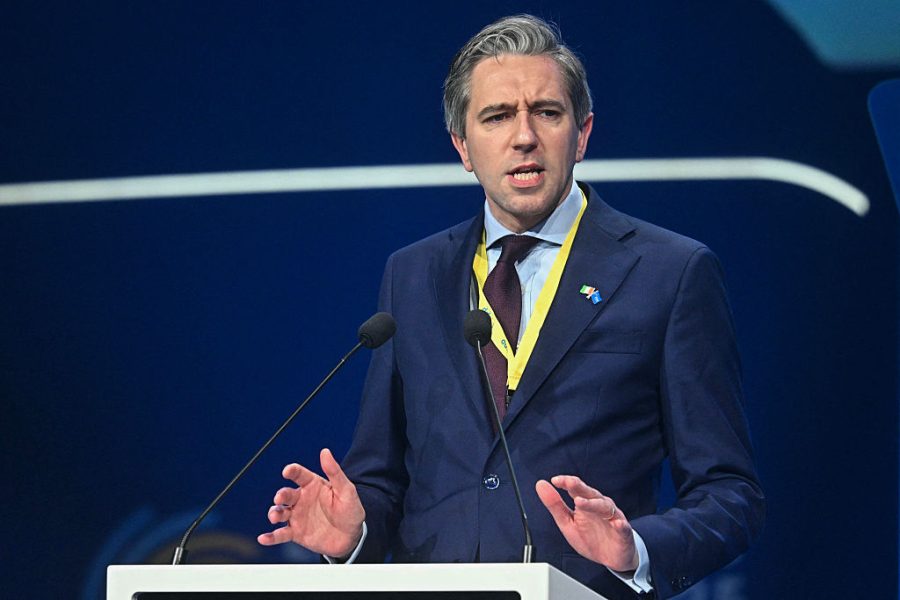Jerusalem’s Shalem College should have been brimming with life when we visited last month. But this leafy campus was oddly empty. The reason, of course, is that a large contingent of its students are currently serving in the Israeli Defense Forces (IDF) as part of the war effort against Hamas.
Away from campus, the young Israelis that we met on our trip were of similar age and appearance to the undergraduates I taught in Cambridge as a doctoral student. But the similarities stopped there. For these young people were about as different to their contemporaries in the West as it is possible to be.
We met a girl in her early twenties who was serving in a female observer unit at the Gaza border on October 7 and had witnessed the murder of many of her friends by Hamas terrorists. Her courage and sense of duty were unthinking and her character showed a maturity well beyond her age. She was both exceptional and at the same time representative of so many other young Israelis. There is a seriousness in their generation, and an earnestness about why their way of life is worth defending.
Young Israelis have developed a vastly different perspective on how to deal with hardship or adversity compared to their western counterparts. British and American universities increasingly wish to protect students from exposure to challenging experiences or difficult subjects. Students feeling anxious are encouraged to intermit and retreat from the strains of their course. Content warnings are being used more frequently with course material. Some academics and administrators are pushing for open-book examinations on the basis that they are less stressful for students.
Israel’s young men and women do not have the luxury of such safetyism. As one of Shalem’s vice presidents put it to me, most Israelis do not even understand the modish language of their western counterparts. For those called up to fight, a ‘microaggression’ means small arms or sniper fire, not an unintended slight or unconscious bias. Their concern is the ‘macroaggression’ of a rocket-propelled grenade or a Qassam missile.
The term trauma is not used lightly either. It describes the experience of those who witnessed the massacre of 350 young people at the Nova music festival, one of whom we met. Every young Israeli knows of someone who was either killed by Hamas, raped, tortured, or taken hostage.
But despite the scars this war will leave, Israeli society is currently experiencing something closer to ‘post-traumatic growth’ than ‘post-traumatic stress disorder’. The existential threat and burden it is placing on its people has not caused its young citizens to shrink as some older Israelis had worried, but rather to grow spiritually and morally.
Acute hardship, combined with national self-confidence and an awareness of the complexities of their shared history and identity, has made these young Israelis more resilient and psychologically robust than their contemporaries across the globe. Institutions like Shalem College serve a vital civic function that western universities have long since abandoned.
Britain is immensely lucky that it does not face a comparable direct external threat. But this may be precisely the reason for our own, distinctive crisis. Young Brits seem more brittle, struggling to manage the human condition, either ignorant or ashamed of their national inheritance, and vastly less prepared for their, or our, future. With many notable exceptions, too many young people in Britain shrink on contact with modern life, entering school and then work almost predisposed to become ‘disordered’.
It is true that younger generations haven’t inherited the material conditions and opportunities their parents and certainly grandparents enjoyed. The barriers to becoming a responsible homeowner, the shortage of jobs which provide not just an income but a vocation, and a tax system that cripples those that simply want to save and become self-reliant: all these contribute to young people’s economic and social infantilisation.
Young Brits seem more brittle and less prepared for their, or our, future
But this is only part of the problem. For decades, we have let the moral and cultural reserves that underpin any healthy society atrophy. Young Brits are growing up without the shared, confident vision of our collective past, or a moral compass for our future. They are taught to fear risk, to hide away from pressure and adversity, and to believe that the most effective response to mental strain is to shrink and withdraw from the world.
Israel’s example reminds us of an important historical reality: that great societies grow up and mature in the face of crisis. It was the case for the United States after independence, or Singapore after separation from Malaysia – as it was for Poland after the fall of communism.
In the UK, we have had numerous such crises out of which national renewal might have ensued, from the 2008 financial crash to Brexit or the pandemic. In each instance, we have appeared to retreat back into ourselves, rather than rise to the occasion.
There is no essential reason why this should be the case. But creating the conditions in which our young people thrive and mature in the face of adversity will require a politics that pays far more attention to those qualities and characteristics that the staff at Shalem College are so eager to foster.
Hardship need not be of the existential sort currently faced by Israeli society to generate growth in character. It can just as easily be the everyday challenge of becoming a self-sufficient and responsible person. But if we want our young people to grow up to be proud and contributing members of society, we need to give young Brits the moral resources required for that development again. In this, our country has much to learn from Israel.







Comments